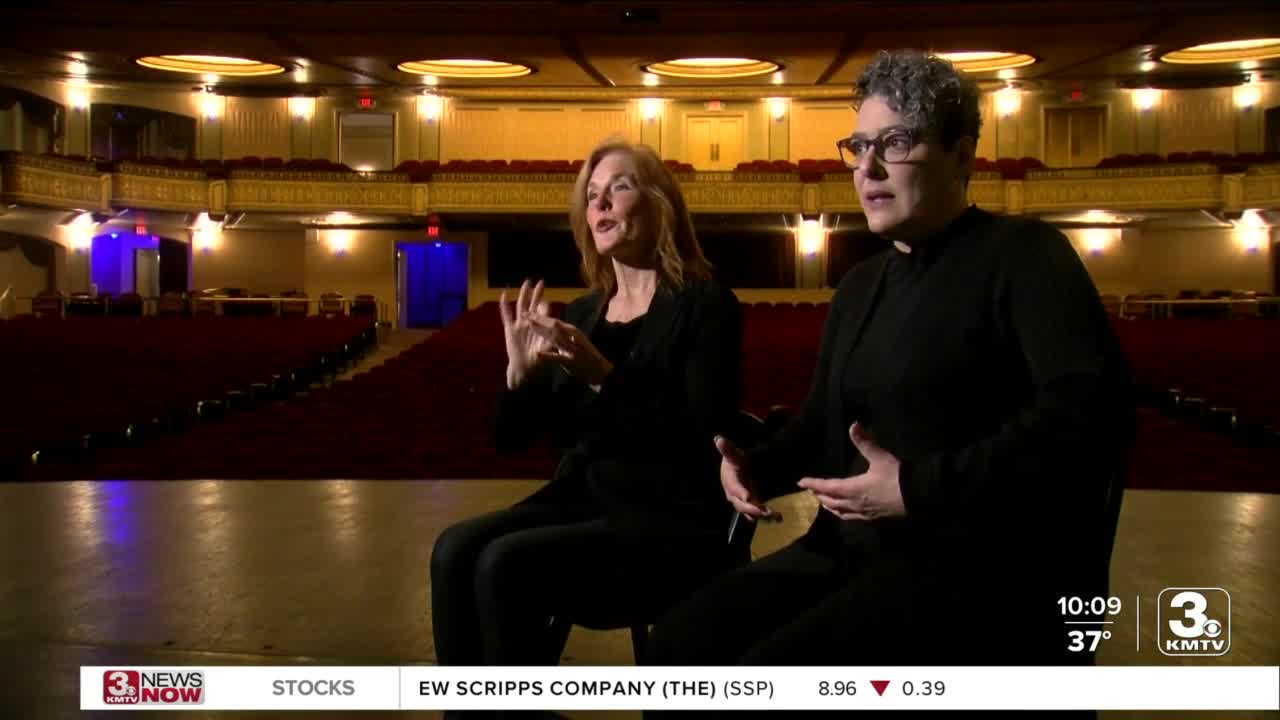OMAHA, Neb. (KMTV) — "The 'City Celebrates America', we are there every year," said Pamela Duncan, an Omaha native and ASL interpreter.
"I've probably done, just about everything you could imagine," said Jamy Elker, an Omaha resident and ASL interpreter.
As American Sign Language Interpreters, these women are used to working on a big stage. But one call, three years ago, put them in the spotlight, perhaps more historic than the rest.
"I feel like this community has finally been seen," Duncan said.
March 2020.
"In the middle of dinner, I got the phone call, from the city, the Mayor's Office specifically, saying that they needed an interpreter, like right now," Duncan said.
Pamela Duncan and Jamy Elker were two of many that answered that call, across the state.
"I got up went down there and not having had any prep, and not really knowing what was kind of about to transcend, it was a little nerve-wracking," Duncan said.
All because they had a community to provide for, that needed that information just as much as everyone else.
"They were not in the dark and they knew what was expected, what would be coming up and any policies, those changes that were coming and also the numbers," Jamy said.
A time they call, pivotal for the deaf community.
"Looking back, if the pandemic would have happened years before 2020, do you think an interpreter would have been there?" 3 News Now Reporter Molly Hudson, asked. "No, no," Duncan said.
Pamela and Jamy have been interpreting for over 30 years, in some capacity. For Jamy it was an interest in the language, that kick-started her career. For Pamela, it was her upbringing.
"My parents and my brother are deaf," Duncan said. "My mother's whole family is deaf, there is six generations of deaf family on my mother's side."
Pamela remembers historic moments where an interpreter wasn't there.
"Having interpreters there gives that real-time access as it is happening, all of the details, and that is what you call equitable access, that is what you call inclusion" Duncan said.
But in 2020, if you tuned into the mayor, the governor, even the Health Department; there is a good chance you saw these two women and, in fact, you probably saw the majority were female interpreters.
"I just want to honor that, yeah, I mean the majority of our industry really is made up of the female gender population," Duncan said.
Forever a part of history.
"Wow, I guess I just really hadn't thought about it," Elker said. "I supposed if somebody wanted to look back at history and the access is still there because we are there, in one way or the other."
A new challenge in their careers, but a job with great importance.
"To be a part of that moment, where the city government recognized every single person in this city, regardless of their modality of communication, for me I think that is historical, and I am proud to be part of that," Duncan said.
Download our apps today for all of our latest coverage.
Get the latest news and weather delivered straight to your inbox.




